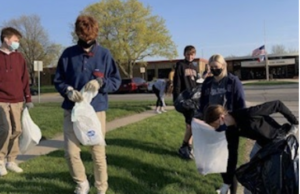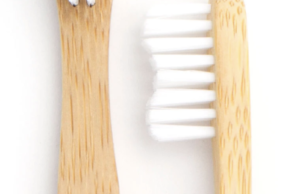Bottle bill increase provides promise
By Donnie Simmet 2008
Collecting a dollar’s worth of can deposits on any given day in Cedar Falls is a challenge. These valuable discards are sparse. As time drags on, luck may bring one to a can here or a bottle there. However, on UNI’s homecoming Sunday, as the sun slowly peeks over the horizon, the stench of stale beer signals in a more hopeful tone. Getting up early to deliver the Sunday morning papers on my childhood route, I passed by yards covered with sticky, smelly, shiny gold. This is when I first realized the incredible amount of beer cans that cycle through the homecoming ritual. I was filled with a sense of wonder and amazement as the wheels started turning in my head, and I realized what wonderful possibilities this sudden income could bring. This sense of wonder and amazement is not unlike the excitement that crept into my mind when I learned that Gov. Culver’s bottle bill proposal would bring in $20 million to fund Iowa conservation and recreation projects. Yet, just like the liquid contents of these containers, fated for inevitable consumption, my hopes were drained into the gullet of political differences and skepticism.
Currently there is a deposit of 5 cents on alcoholic and carbonated drinks, which the retailer pays to the distributor and the consumer pays to the retailer. When the consumers redeem the containers, they get 5 cents back. Then, the distributor collects the containers from the retailer, giving them their 5 cents back on each one, plus a one-cent handling fee. The governor’s proposal called for the payment of a 10-cent deposit on containers. Consumers would have received 8 cents back for each container returned. The two cents lost constituted a kind of tax or fee. One cent would have gone to what would have been annually about $20 million for Iowa’s Resource Enhancement and Protection program (REAP). The other cent would have gone to the retailers and redemption centers that bore the burden of taking the messy containers back in. However, this two-cent tax is no more. Gov. Culver has backed down on this essential aspect of his bottle bill revamp proposal, essentially spilling the can of guaranteed $20 million annual funding for REAP.
REAP provides money to better the state’s natural and cultural resources. This includes parks, trails, water quality and conservation projects. Whether you like to hunt, fish, bike, hike, picnic, camp, boat or really enjoy any outdoor activity, this means good things for you. Actually, you can dislike outdoor activity and this still means good things for you, assuming you care about the Iowa economy. Iowa is toward the bottom as far as state spending on natural resources goes. Putting more money into something like this would attract more tourists and increase property values. This is also something that should be considered in the attempt to keep young Iowans here. Outdoor opportunities are certainly something that I will consider when deciding where to live and work. Gov. Culver claims that he is still going to press for an increase in REAP funding, but with the termination of this tax, his intentions take on no concrete form.
Besides pressing for increased REAP funding, Gov. Culver also intends to push for an increase in the deposit from 5 cents to 10 cents, a broadening of the bottle bill to cover bottled water, sports drinks and fruit juices, and an increase in the handling fee paid by distributors to redemption centers. The current deposit has been very successful in reducing litter and increasing recycling. A higher deposit will only strengthen this. The broadening of included drinks will increase recycling. Redemption centers need more money to deal with increasing loads.
While I hope the revised proposal is implemented, I still have a hard time understanding the great concern that ensued over the 2-cent tax proposal. Would it really be that hard to pay an additional two cents for your sugary soda? Some may argue that it adds up. If you were to buy one taxed drink every day of the year, it would cost you an additional $7.30. A $7.30 well spent.









You must be logged in to post a comment Login